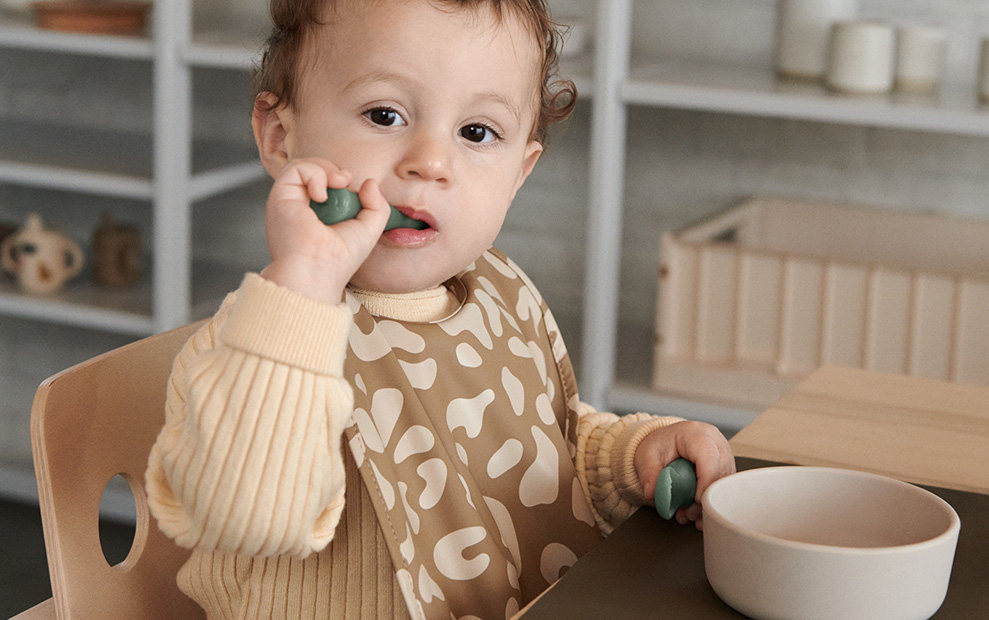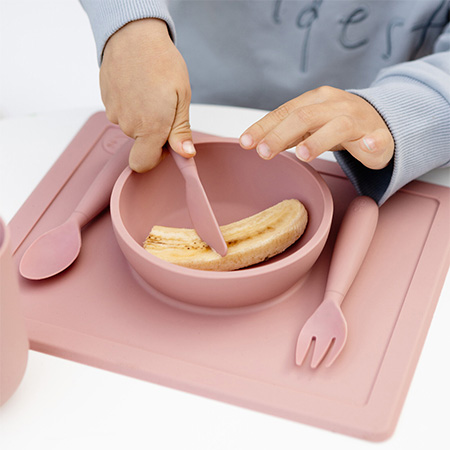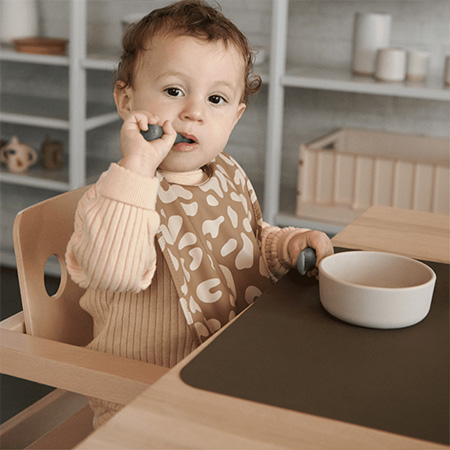Menu

From slurping to nibbling and before you know it curiosity triumphs and children reach for a spoon and fork. Learning to eat independently is not only an important developmental stage but also an adventure full of discoveries and fun. From now on, you don’t have to play the airplane game anymore; they’re the pilot themselves! But when should you start encouraging your child to eat independently? And what are valuable tips & tricks (and cleaning tips) in this messy process? We’re happy to explain it to you in this blog. Bon appetite!
Every child develops at their own pace, but generally you can expect your child to be able to use a spoon around 12 to 18 months and a fork around 2 years old. The process of learning to eat independently usually begins around the age of 6 months when your baby starts showing interest in solid food. This is the perfect time to start training. Pay close attention to your child’s pace, curiosity, and motor skills. If your child isn’t holding a spoon by itself yet, start at a later time. Be patient. There’s no rush.


Start by demonstrating the correct grip and guide your child in holding the cutlery. Let your child get used to the sensation of holding and using the spoon or fork. Patience is key; it may take a while for them to master fine motor skills.
Encourage independence by offering your child small amounts of food. Avoid too much assistance so your child can develop the skill of eating by itself. Give compliments and celebrate small successes to boost confidence. The learning process can occur naturally and playfully during regular meals. Create a positive and relaxed atmosphere and give your child space to explore. Make every meal a fun experience by using cheerful plates and tableware. With their own dishes and cutlery, your child truly becomes part of the mealtime.
Opt for baby-friendly cutlery designed with small hands and mouths in mind. Soft silicone spoons are ideal for the first steps. Forks and spoons with rounded edges ensure safety. These items are also easy to hold by small hands and often provide a good grip. Practice makes perfect!
Start with soft, easy-to-handle foods such as steamed vegetables, pureed fruit, and soft grains. This food is easy to bring to the mouth with a spoon. Spilling and messing are part of the learning process. Use a placemat and bib to prevent your little one from making a big mess. Keep a cloth at hand to clean your little one’s face. Plus, that also comes in handy to clean the table and floor afterwards.
